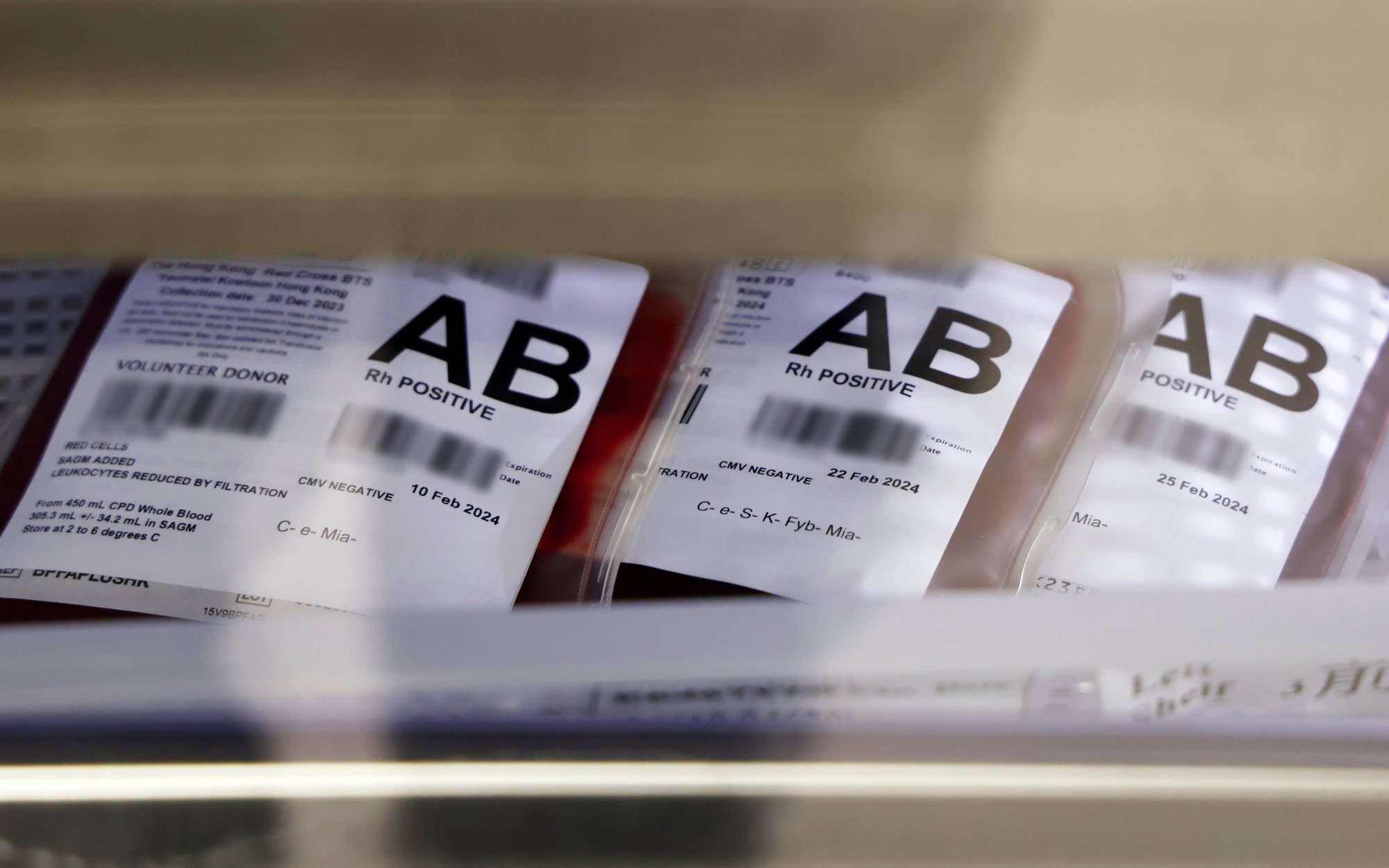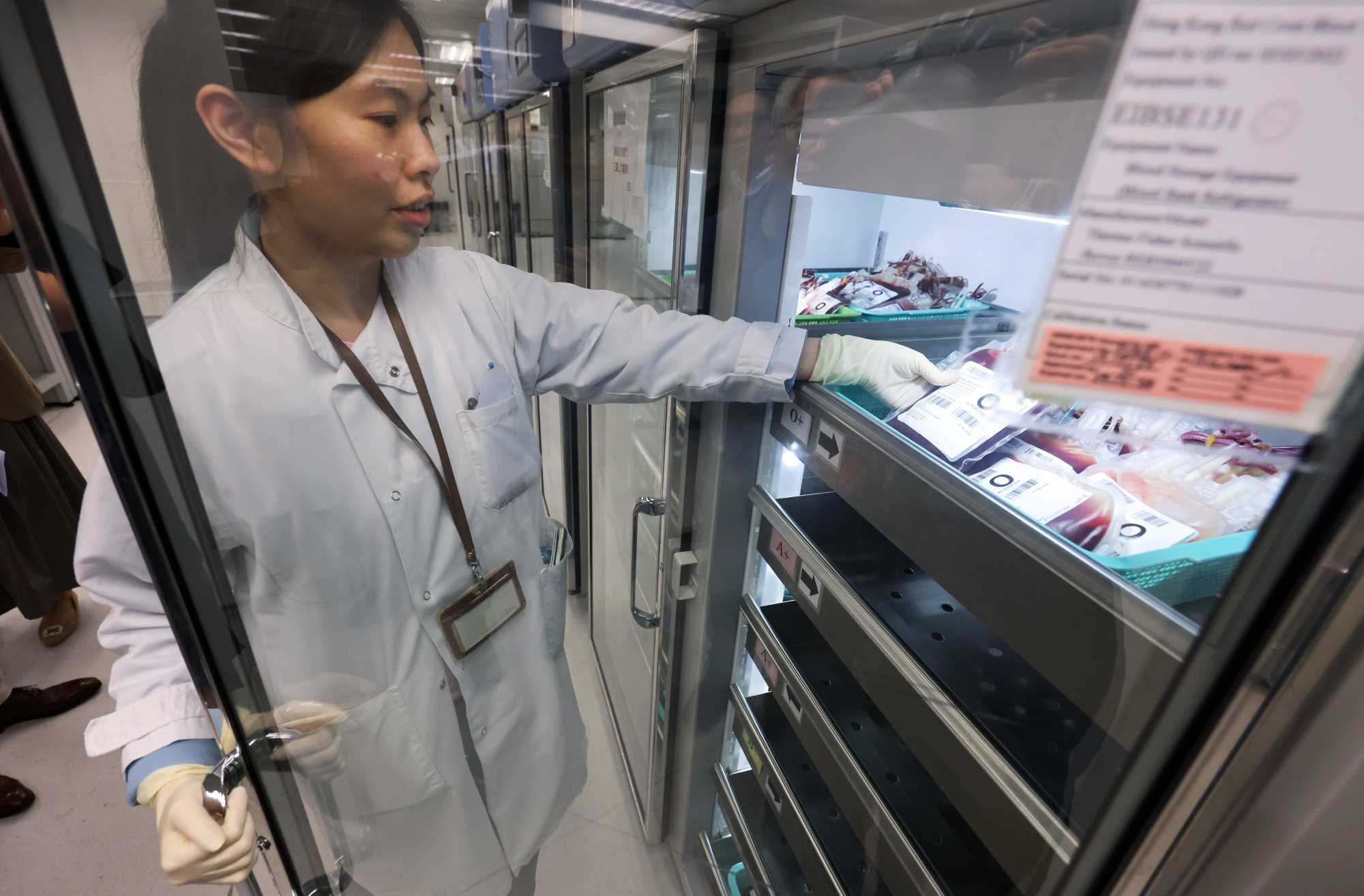
Hong Kong Red Cross appeals for blood donors as it warns stocks to run out in days amid influx of hospital admissions
- Storage of blood types O, A and B to run out in less than four days, while inventories for type AB will only last five or six days, service says
- Number of regular donors has declined in recent weeks because of flu-related illnesses, service’s director adds
The Hong Kong Red Cross has appealed for blood donations and warned its inventory will run out in days as the number of regular donors had dropped because of the flu as hospitals confront an influx of patients.
The Red Cross Blood Transfusion Service announced on Thursday that its stocks of blood types O, A and B would run out in less than four days, while inventories for type AB would only last five or six days.
The ideal supply of fresh, quality blood should last for about nine to 10 days, Lee Cheuk-kwong, chief executive and medical director of the service, said.

He said an average of 620 people a day visited the service’s donor centres across the city, but they had to turn away about 30 to 40 each day in recent weeks because of flu-related illnesses.
“Some suffer from respiratory infections, while others are on medication or have mild flu symptoms,” Lee said. “We received 1,000 fewer bags of blood this month compared with the previous month.
“We hope more citizens will come forward to donate, especially before the coming cold spell and Lunar New Year period.”
The service’s website said it received only 516 units of blood the previous day, well under the daily collection target of 650 units.
50 years of giving blood and Hong Kong man, 70, still runs and hikes
The bank is the sole public institution delivering blood to public and private hospitals in the city.
Lee explained the winter flu season had triggered an increase in demand for blood in public hospitals.
“Within the first two weeks of 2024, public hospitals used 10 per cent more blood donations compared with the same period in 2023,” he added.
The Centre for Health Protection warned last week that influenza cases were expected to increase in the next few weeks and appealed to the public to step up personal protection against the virus.
End myths to boost blood donations in Hong Kong
Wong Nga-sze, a frontline nurse, said that one in 10 donors who recently visited the service’s popular donor centre in Mong Kok were ineligible because of illness.
“Many of our regular donors had to reschedule their appointments as they were down with the flu,” she said.
Wong, who carries out donation drives in secondary schools, said the number of pupil donors saw a huge decline since last October as more pupils became ill and schools went on their winter breaks.
More Hongkongers travelling overseas had also reduced the pool of eligible donors, Lee added.

Red Cross guidelines stipulate that people who have visited countries affected by the West Nile Virus – such as the US, Canada, France, Spain and Germany – cannot donate blood within 28 days of their travel.
Lee dismissed a misconception that people who got a flu jab could not donate blood, and said Hongkongers should get vaccinated to protect themselves.
“Donors can donate blood the next day after receiving their flu jabs,” he said. “Those down with flu can donate blood one week after they have recovered and stopped taking medication.”
Lee added that blood donors were advised to make appointments by calling the service’s hotline or a centre, or through the service’s website and mobile app.

